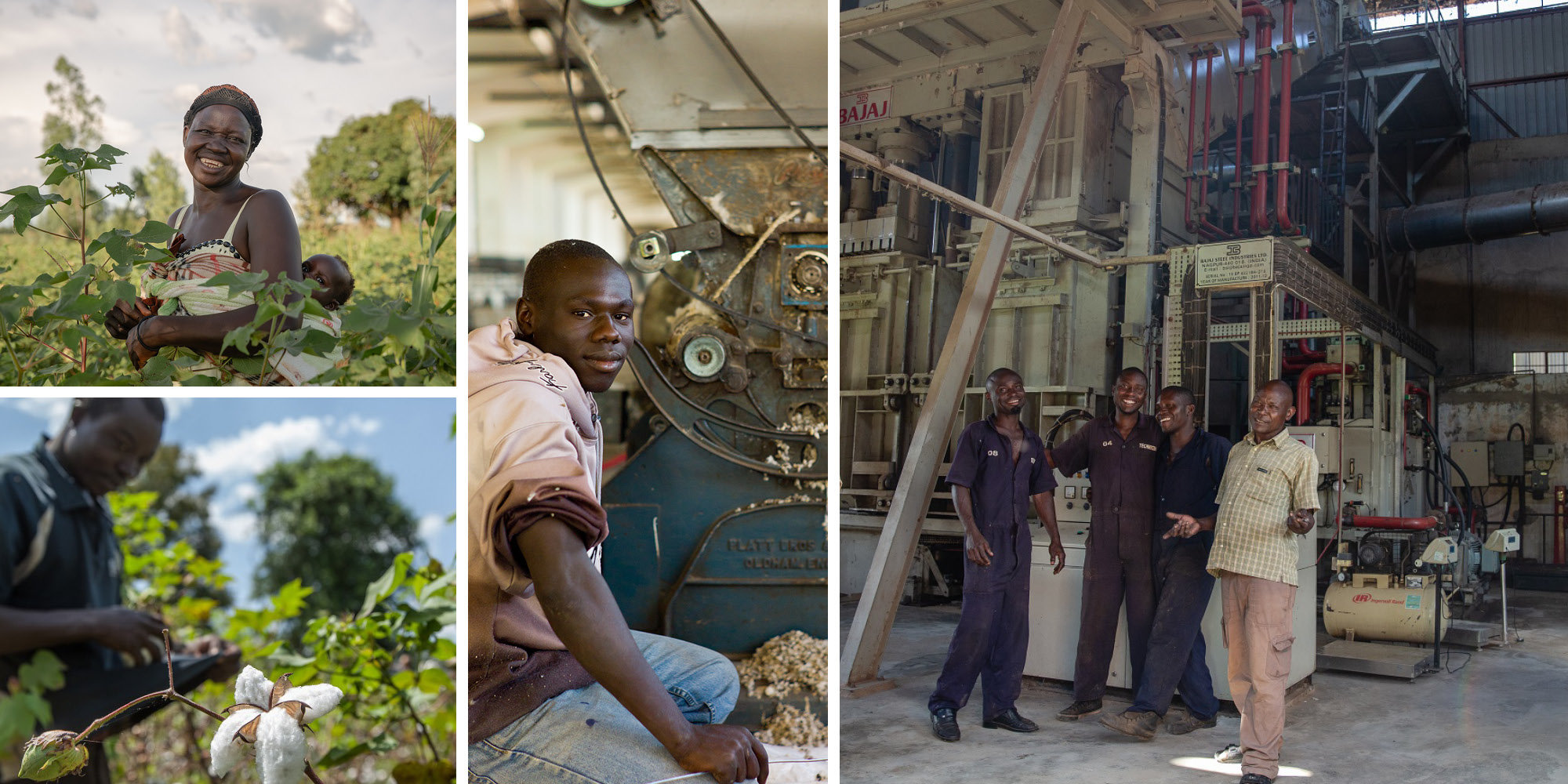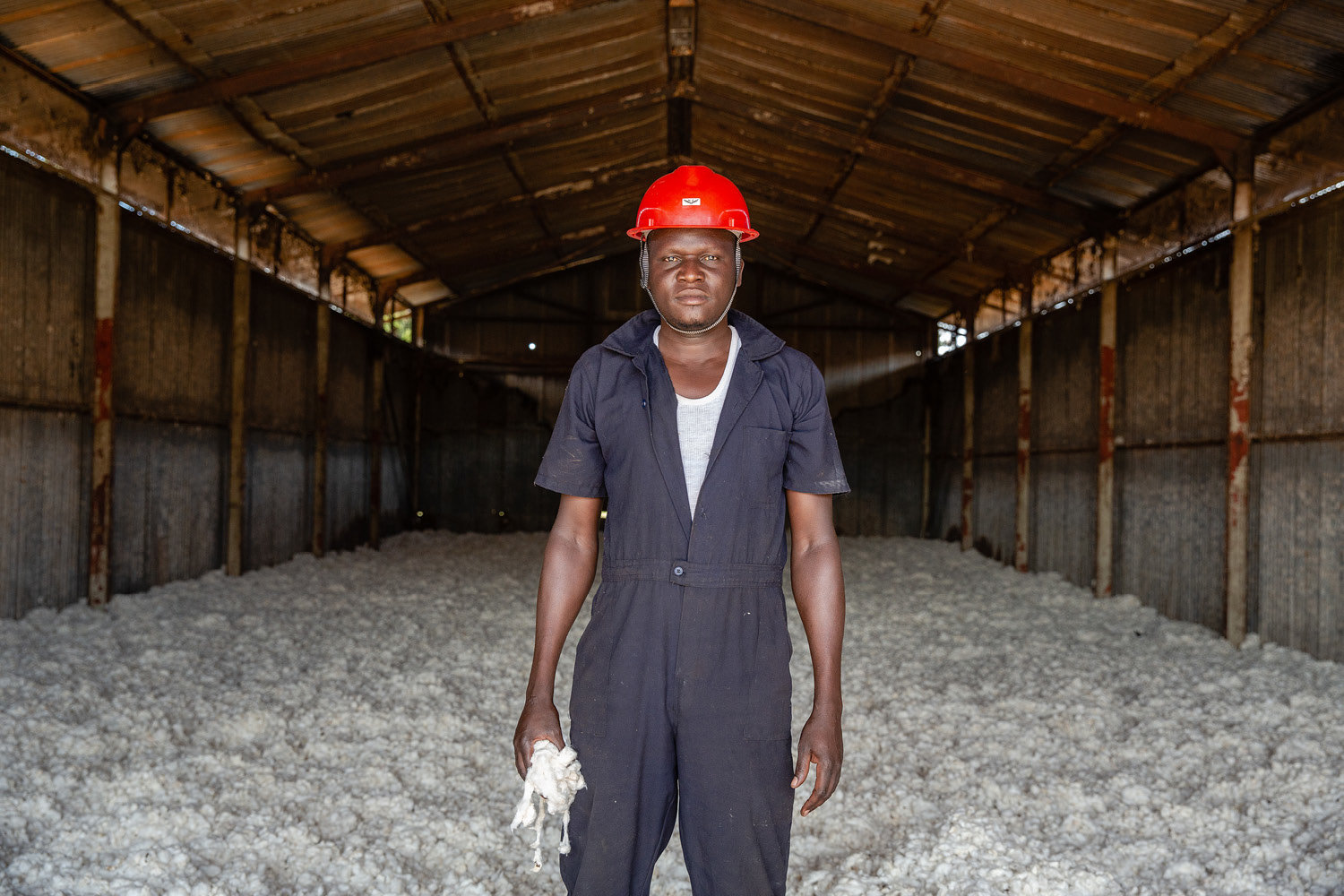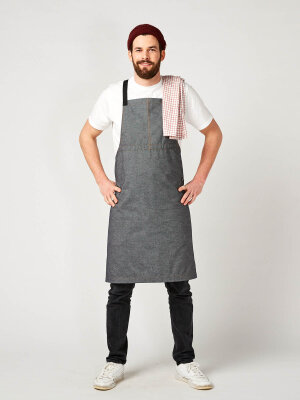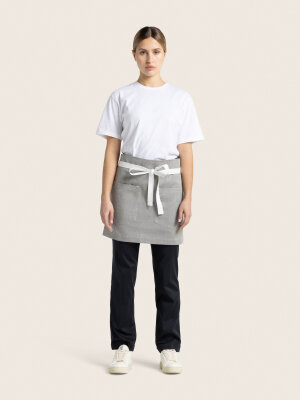We only use organic cotton.
The conventional cotton industry is a huge machine. Cotton is traded on the global commodity markets and commodity futures exchanges. Of the global cotton production, only about 1 percent is organic cotton. We use only organic cotton in our products. In doing so, we support sustainable agriculture and oppose genetically modified cotton varieties, the destruction of biodiversity, the use of chemicals and the associated health risks for people involved in the production or wearing our products.
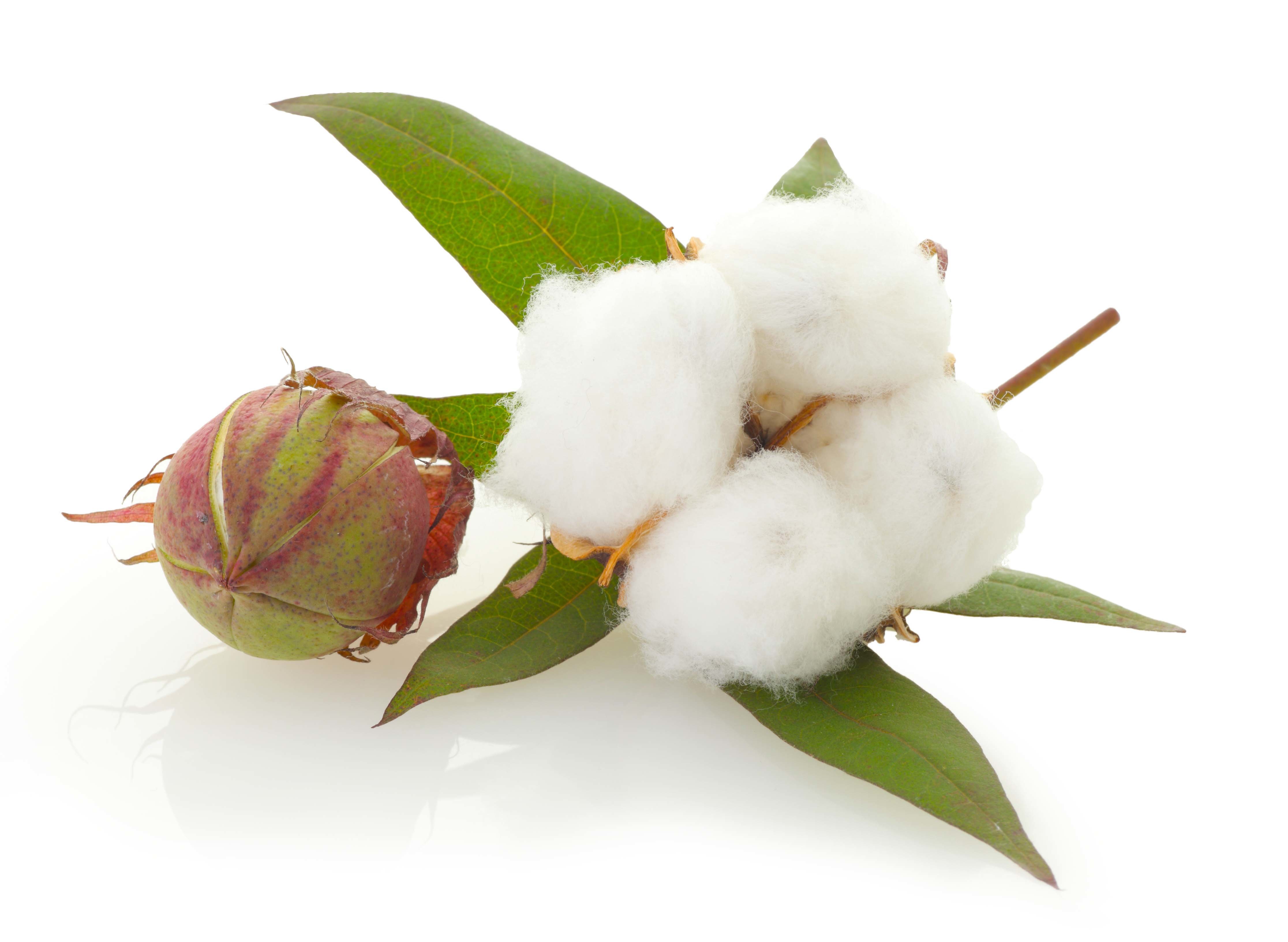
WHY ORGANIC COTTON?
Compared to world cotton production, organic cotton is still a rare commodity. Just 0.8% of the world's cotton harvest comes from organic cultivation. Yet the advantages are obvious: when growing organic cotton, chemical-synthetic fertilisers, pesticides and genetically modified seeds are avoided altogether. Monoculture is avoided and crop rotation is maintained. Thus, the soils do not leach out, more even: they become more fertile through organic farming. Chemical treatment of the fields (fertilisers and pesticides) is completely avoided. The cotton is harvested by hand, which results in a higher quality. Toxic defoliants, as in mechanical harvesting, are not used. While people die year after year from pesticide poisoning in conventional cotton cultivation in Africa, compliance with all ecological rules in organic cotton cultivation protects people and the environment. The fertility of the soil and the purity of the important groundwater are preserved in a natural way. Pest control is also done naturally: by complementary crops or by breeding beneficial insects such as wasps. In addition, the farmers are provided with natural seeds, and the seeds are specifically cared for and further developed. Each individual field is carefully monitored and all measures are recorded in a report. Compliance with all ecological rules is monitored by an independent certification organisation.
COTTON FARMER OR CUSTOMER: ORGANIC COTTON OFFERS ADVANTAGES FOR ALL SIDES
In order for all sides to benefit in the long term, it is necessary to take a determined stand for the conservation of our resources. Like this we are convinced that workwear from KAYA&KATO is a win-win for everyone - for the organic cotton farmers in Uganda but of course also for our customers. Because of the excellent cotton quality, our products made of organic cotton are durable, easy to care for, tear and abrasion resistant and are characterised by a high wearing comfort. Since no pesticides or toxic defoliants are used in the cultivation of organic cotton and no toxic chemicals are used in the further processing, our workwear is also particularly skin-friendly.
The farmers in Uganda benefit from fixed purchase prices from the cultivated area, which are agreed upon even before the harvest. Our partner assumes the quantity and quality risk. In addition, there is a premium for each kilogram harvested. In this way, the farmers can calculate with fixed income right from the start. In training courses, they learn everything about soil fertility, erosion control, beneficial insects, crop rotation and water balance. Farmers have a say, and they are happy to make use of it. Everyone can voice their wishes and concerns.
COTTON CULTIVATION IN UGANDA
In north-western Uganda, some of the organic cotton we use is grown on land that has been fallow for decades because of the war. For 20 years, there was a bloody civil war in this region. It was not until mid-2010 that the last refugee camps were closed and people returned to their villages. In many cases, existential things - such as knowledge about farming - were lost. But despite the civil war, they still exist, the old farmers who know organic farming down to the last detail. For the land is fertile and naturally irrigated by rain. Due to the proximity to the equator, several harvests can be brought in around the year. Experienced farmers achieve high yields here. The many young farmers who could not learn farming are now being trained and educated.
